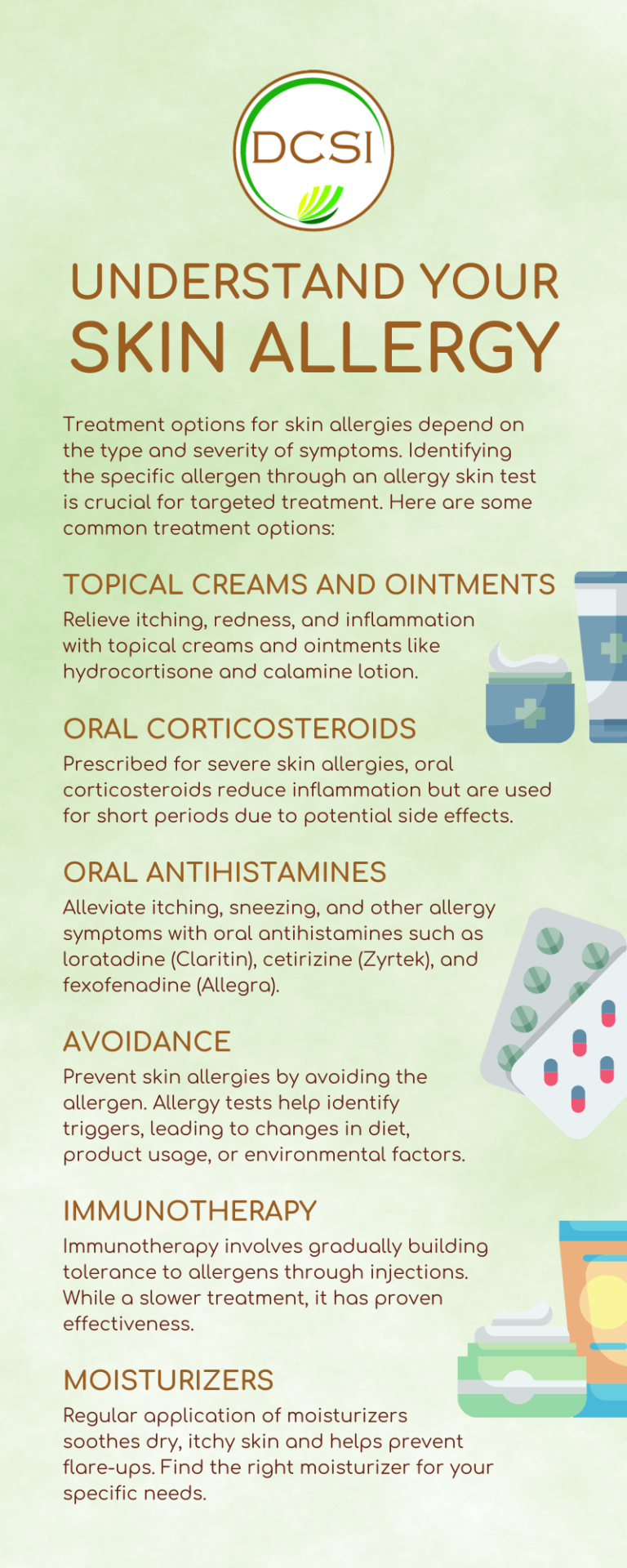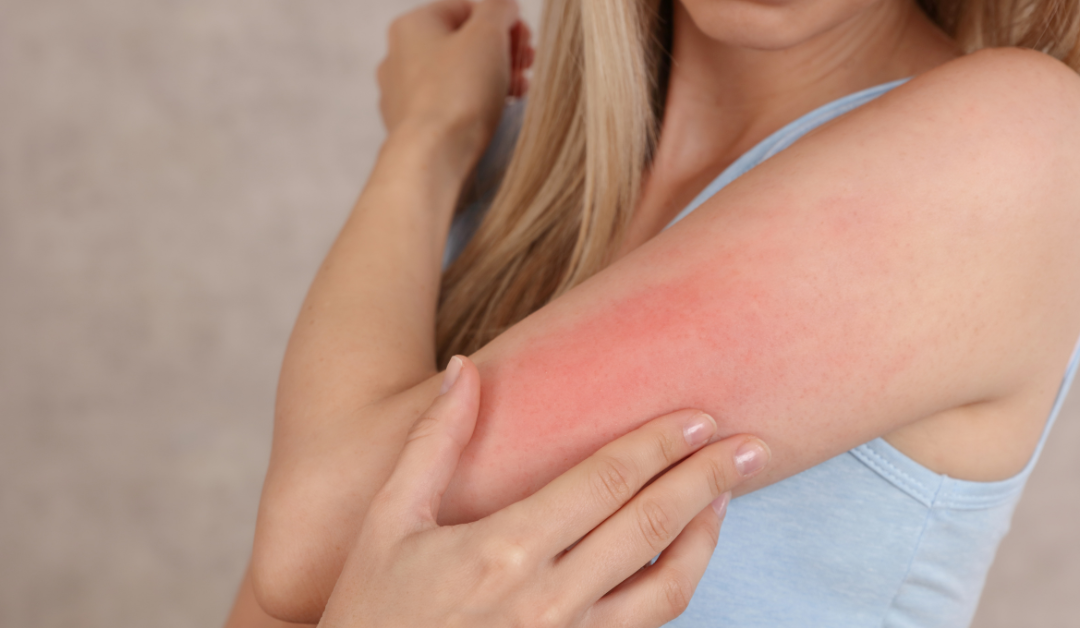Do you suffer from itchy or inflamed skin? If so, you may be experiencing a skin allergy. Skin allergies can occur for various reasons, such as contact with certain materials, substances, or foods, exposure to irritants or allergens, or even a genetic predisposition. While some skin allergies may be mild and easily treatable, others can be more severe and require professional treatment from a doctor or dermatologist. In this article, Dr. Wassef of DCSI and his team explore skin allergy treatments in more depth. Keep reading to find out more from our South Florida experts.
Skin Allergy Treatment Options
Skin allergy treatment options depend on the type of allergy and the severity of the symptoms. There are many different skin allergy types. Some people might even visit a doctor or dermatologist to get an allergy skin test taken to find the exact item that is giving them an allergic reaction. Below are some other common treatment options.
Topical Creams and Ointments
Often used to relieve itching, redness, and inflammation caused by skin allergies, some common examples of topical creams and ointments include hydrocortisone and calamine lotion.
Oral Corticosteroids
Prescribed for severe skin allergies and can reduce the amount of inflammation you have, oral corticosteroids typically are used for short periods due to the severity of the side effects that come with them.
Oral Antihistamines
Many oral antihistamines can help relieve itching, sneezing, and other topical allergy symptoms. Some common examples include loratadine (Claritin), cetirizine (Zyrtek), and fexofenadine (Allegra).
Avoidance
Avoiding the allergen is the most effective way to prevent skin allergies. Taking the skin allergy test to find out exactly what needs to be cut out is the perfect way to begin this treatment. Changes may involve changing your diet, avoiding certain products, or staying indoors during high pollen count days. Restaurants have become more accommodating of those on strict diets due to allergies and similar situations, such as Celiac Disease. For many people, this is the only treatment that works.
Immunotherapy
A long-term treatment called immunotherapy involves injecting small amounts of the allergen into the body to build up tolerance over time. This is one of the slower-moving treatments, but it has repeatedly been proven to help.
Moisturizers
Regularly applying moisturizers can help soothe dry, itchy skin and prevent flare-ups. Make sure to find the right moisturizer for you, as they all target various types and areas of the skin.
How to Reduce Skin Inflammation
Skin inflammation is a common condition that can cause constant discomfort and irritation. It can be caused by a variety of factors, including allergies, irritants, infections, and underlying medical conditions. If left untreated, skin inflammation can lead to more serious complications, such as infection and scarring. Fortunately, there are several ways to reduce skin inflammation and soothe irritated skin. To help reduce skin inflammation, you can try a cold compress or topical creams. Oatmeal baths are also proven to help with skin inflammation. Just be sure to stay moisturized if you are experiencing any symptoms of skin allergies.
Let Dr. Wassef Treat Your Skin Allergy Today
It's important to talk to your doctor about the best treatment options for your skin allergies, especially if you experience severe symptoms or if your symptoms do not improve with self-care measures. Be sure to stop by our skin and allergy center, DCSI, if the symptoms persist. Dr. Wassef is happy to provide eczema skin allergy treatment, among many other skin treatments.
Be sure to get in touch with a member of our dermatology team today if you have any more skin allergy treatment questions or want to schedule an appointment. With our expertise, DCSI will be happy to help you.



